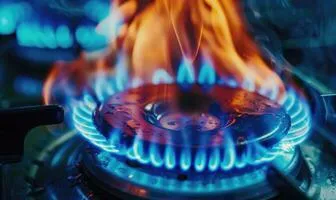
Why Combustion Efficiency Is Still Massively Relevant
With so much focus on electrification and long-term net zero targets, it’s easy to assume the future is already here. But the reality? Most buildings, industrial sites — even homes — are still heated by gas, oil, or LPG. And that’s not going to change overnight.
As you’ll know, I’m a huge advocate for sustainable solutions. But I also wear a commercial hat — and making changes just because “everyone else is doing it” makes no sense if the numbers don’t stack up. Why put your organisation under pressure — or worse, at risk — just to tick a box?
So, what’s the solution?
The key lies in tech-based, phased approaches that support you along the path to net zero — without blowing the budget.
The Real Cost of Electrification
Let’s be honest — switching from gas to electric heating is expensive. It’s not just the kit. It’s the infrastructure, the grid upgrades, and the ongoing running costs.
For schools, hospices, charities, care homes, and many businesses — the list goes on — these costs are simply prohibitive. Even with funding, a full heating system replacement can take years to plan and pay back.
That leaves many organisations stuck with ageing systems — and unsure how to improve performance in the meantime.
The Truth About Fossil Fuel Heating
Here’s the thing — LPG, gas, and oil are still some of the most efficient fuels when it comes to combustion. The heat output is high, the systems are robust, and in many cases, they’re more effective at delivering consistent warmth than the electric alternatives available today.
And that matters. Things change quickly as you scale up. In industrial kitchens, large care homes, hospitality venues, hospitals, heavy industry, and commercial operations — the list goes on — reliable heat and controllable systems are essential. Efficiency, uptime, and energy density all make a big difference.
So the real question is: can you keep the systems that work — and still make meaningful gains in carbon reduction?
Yes, you can. And that’s where combustion efficiency technology — and smarter fuels like biogas — come in.
Why Biogas Deserves More Attention
If you’re using gas, LPG, or oil but want a cleaner future, biogas offers a smart middle ground.
Biogas is a renewable, low-carbon fuel produced by breaking down organic waste — like food scraps, agricultural residues, or wastewater — in an oxygen-free environment (anaerobic digestion). The gas produced is rich in methane, much like natural gas.
The best part? You can often use biogas with your existing heating system. That means minimal disruption, no costly electrical upgrades, and a smoother transition to lower-carbon energy.
The benefits:
✅ Lower lifecycle carbon emissions compared to fossil fuels
✅ Drop-in compatibility with many current gas systems
✅ Supports circular economy principles by turning waste into energy
✅ Helps reduce carbon footprint without overhauling infrastructure
Biogas can be injected into the gas grid or supplied in bottled form to off-grid sites. Some organisations even blend it with fossil gas, increasing the renewable share over time. This kind of phased approach makes decarbonisation more manageable — and more commercially viable.
Sure, not every site can access biogas yet. But as supply grows and infrastructure improves, this will become an increasingly accessible, low-disruption step towards net zero.
A Smarter, More Affordable Solution
You don’t need to rip everything out to see real results.
If you know me, you’ll know I’m all about practical tech. I’m always looking for what can be done — right now — to save money, cut emissions, and avoid unnecessary capital spend.
Combustion efficiency technology, like Magnatech, lets you upgrade your existing heating system at a fraction of the cost of a full replacement. By optimising how fuel burns inside your boiler, you can unlock:
✅ 15–20% savings on fuel consumption
✅ Site-specific analysis to maximise ROI
✅ Immediate carbon reductions — no major works required
✅ Improved reliability and extended system lifespan
This is a retrofit, not a replacement — and it’s one of the fastest, most cost-effective ways to make a real impact from day one.
Retrofitting That Works: Practical, Affordable, Impactful
Instead of chasing idealistic solutions with long timelines and hefty price tags, many organisations are focusing on realistic retrofits — smart upgrades that maximise what they already have.
This approach fits today’s energy landscape perfectly: low risk, low cost, and high impact.
Remember, the journey to net zero is just that — a journey. It’s about being smart with commercial savings along the way. I always start by asking: what savings would you like to see over the next 5 or 10 years? Then we audit and analyse to see if those targets are achievable. From there, you can identify low-cost solutions that pay back quickly, alongside more complex projects that require more time and budget to plan.
So, do you have an energy strategy in place?
Solutions like biogas and combustion efficiency technology might not grab headlines — but right now, they’re some of the smartest and most practical steps you can take.
Want to know what your boiler — or any other part of your energy infrastructure — is really costing you?
Get in touch for a chat, and let’s explore how to cut energy use, reduce emissions, and save money — quickly and affordably.
Until next week, just remember this:
“Success is a system, not a secret. Build it, own it—and never wait for permission to improve it.” www.vitalisenergy.uk
Ready to Start?
• Download your free energy audit tool
• Register for the June webinar
• Or just email: [email protected]
